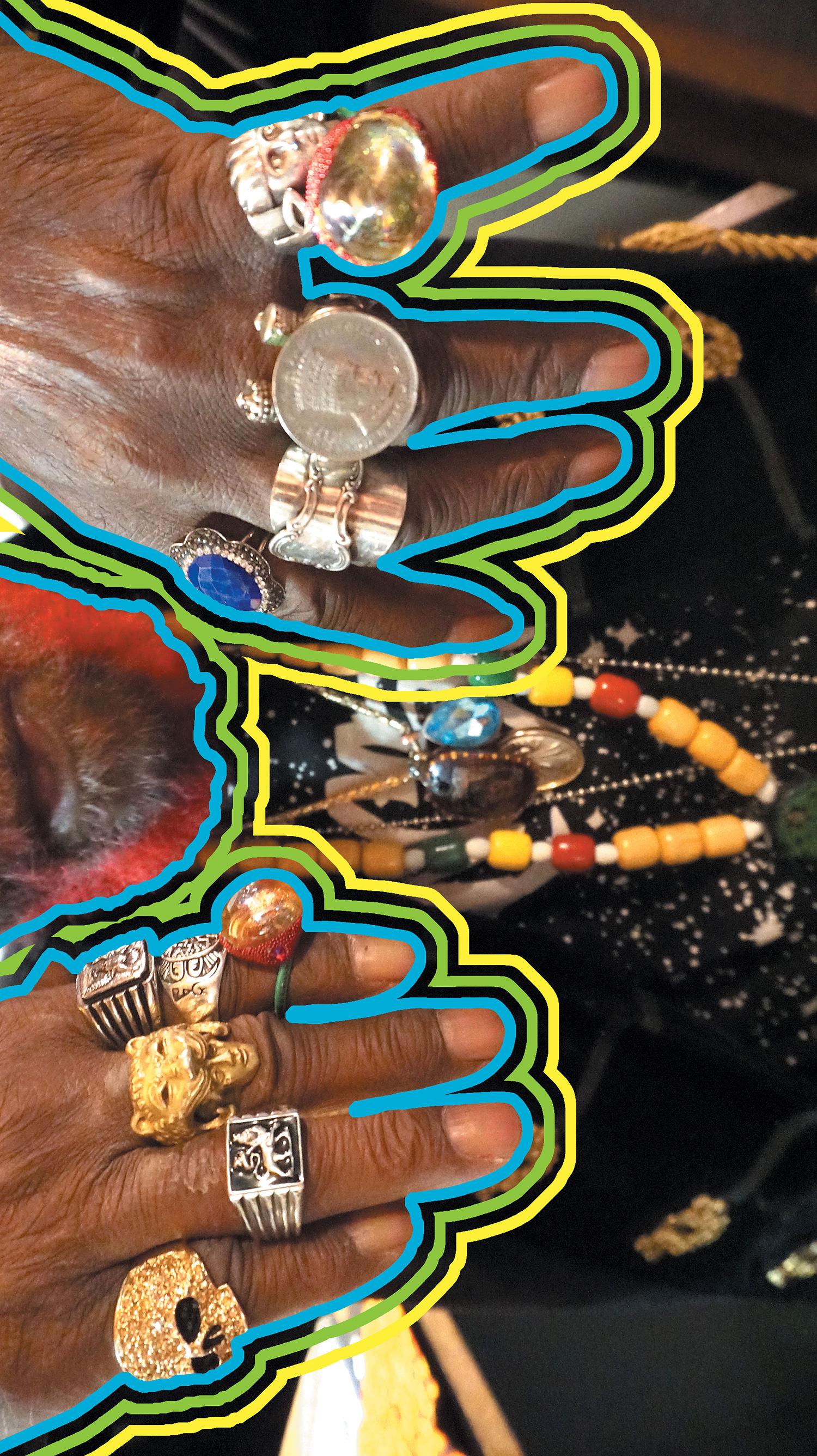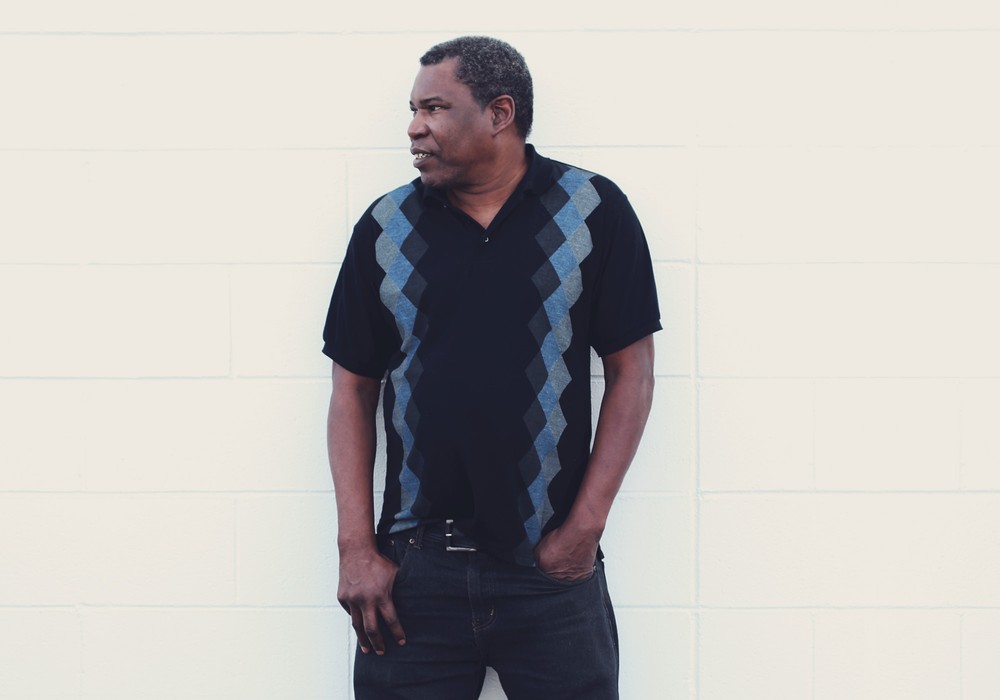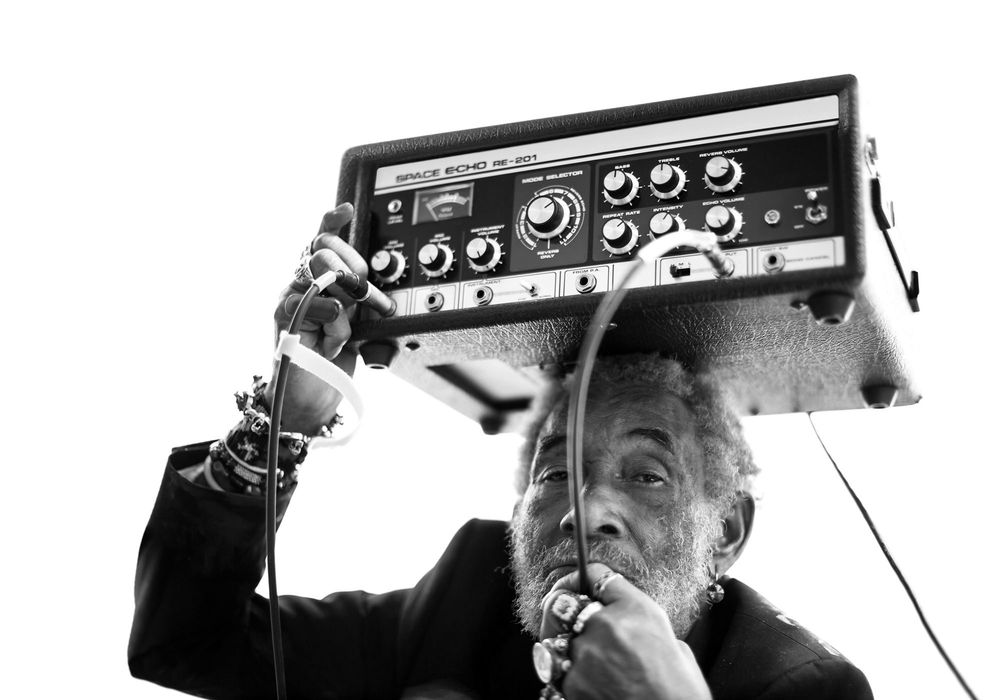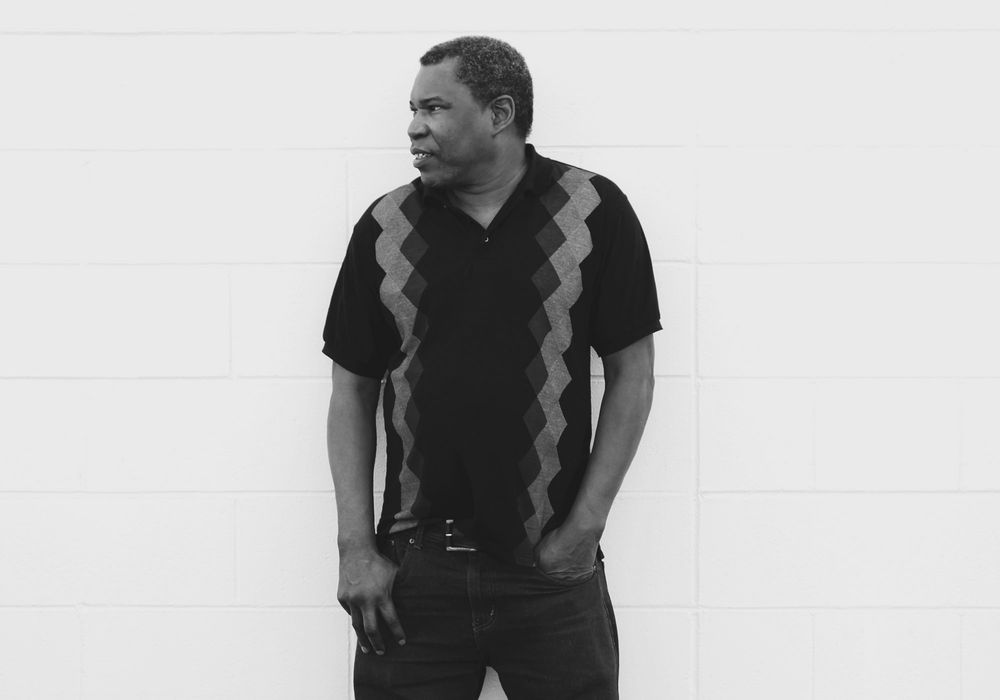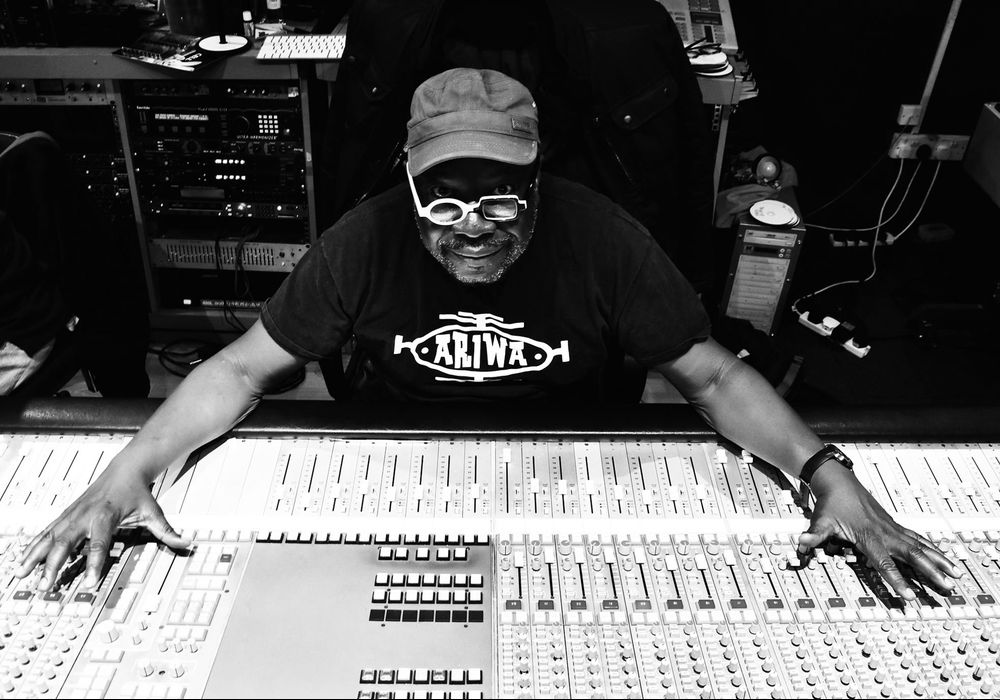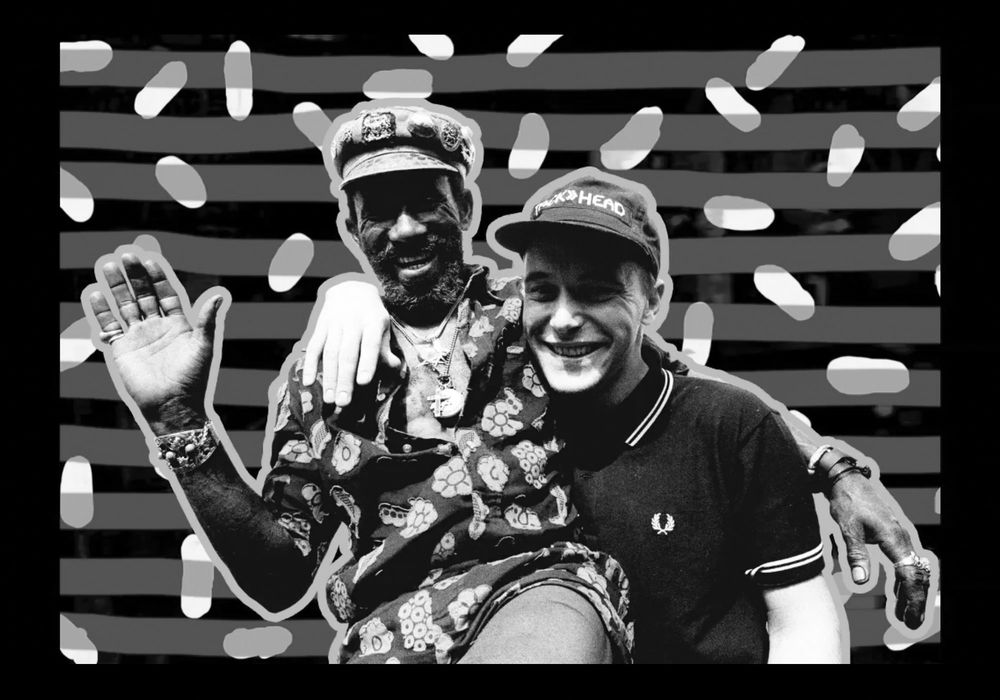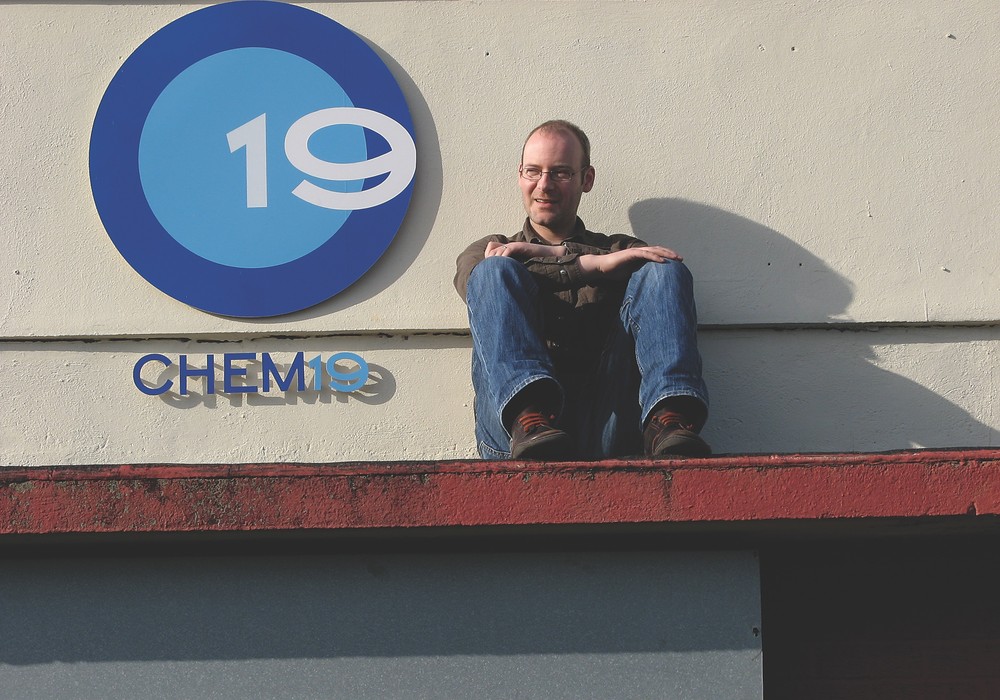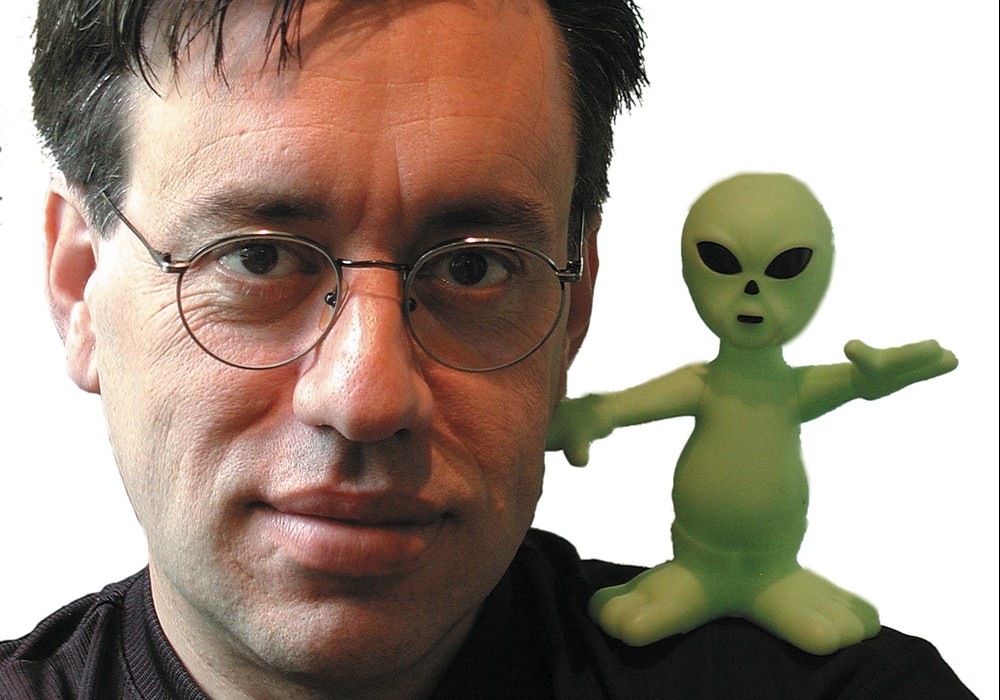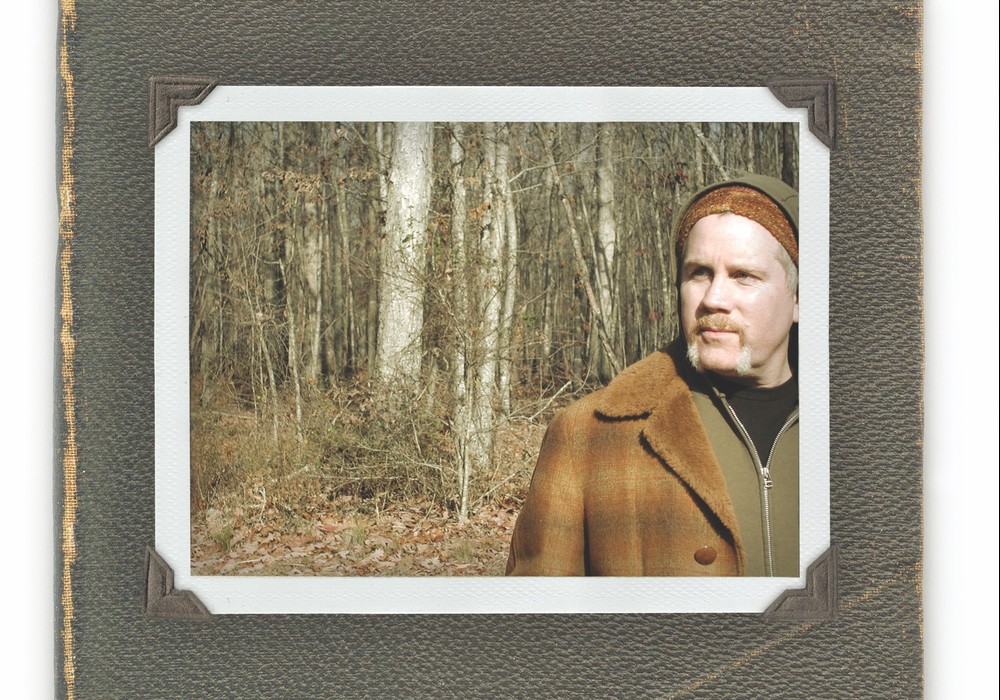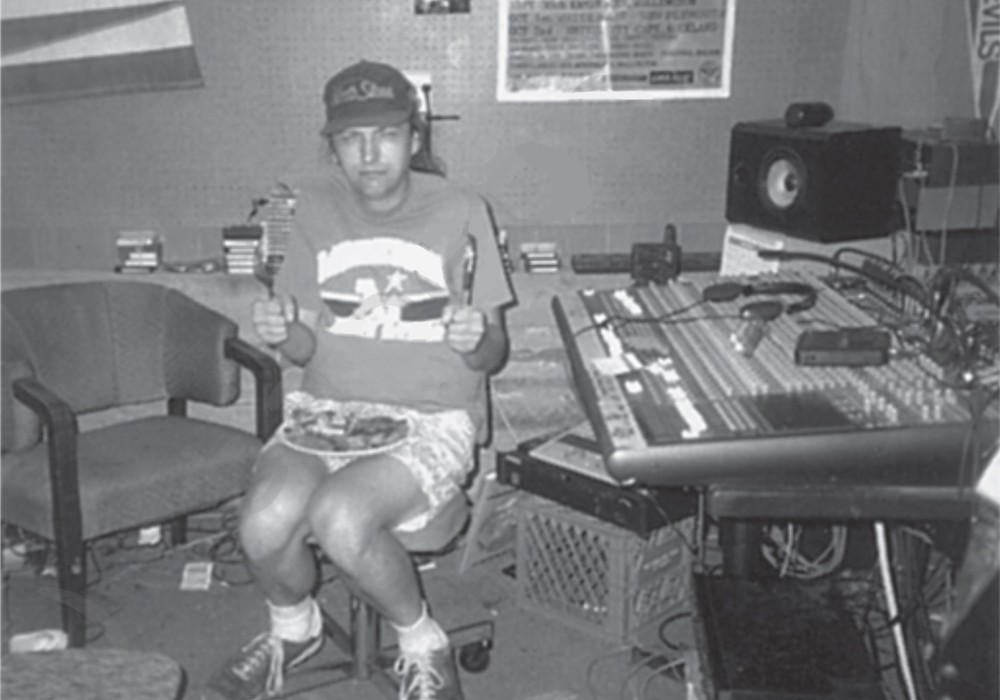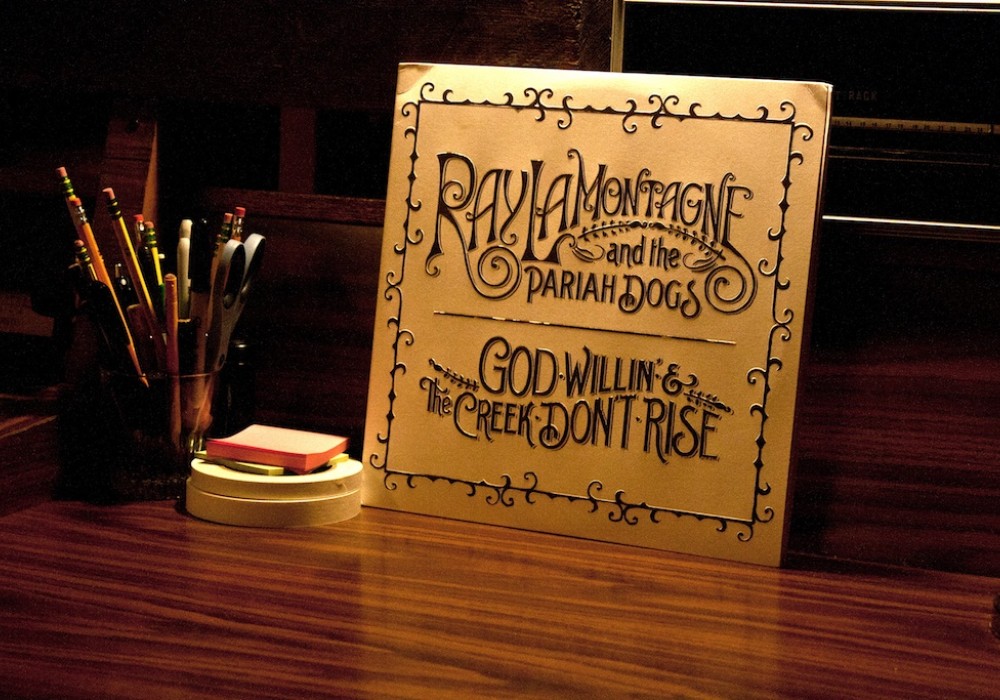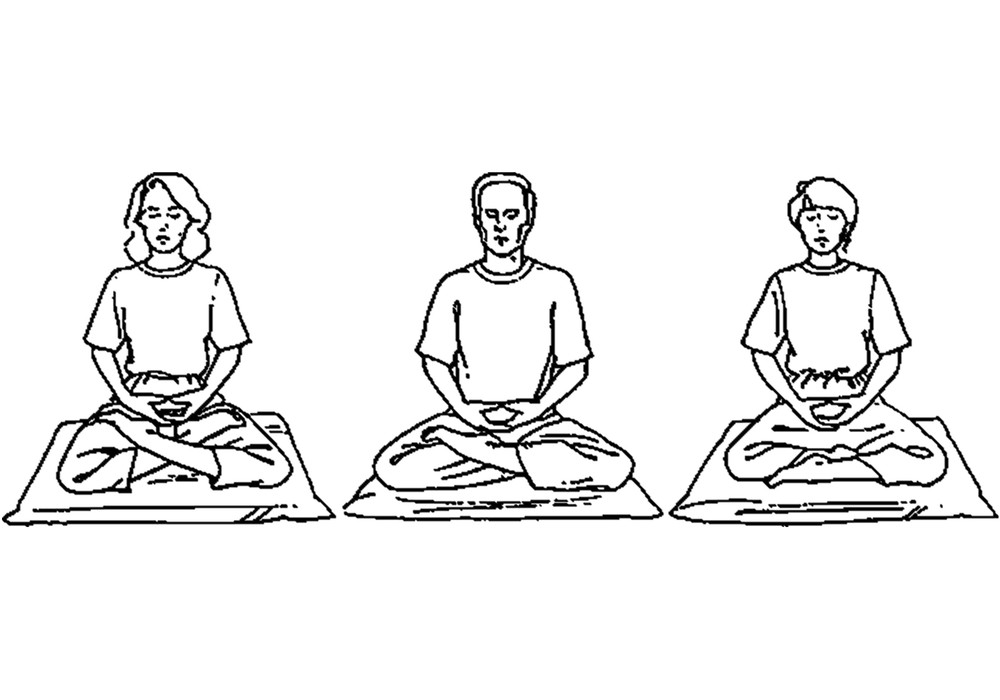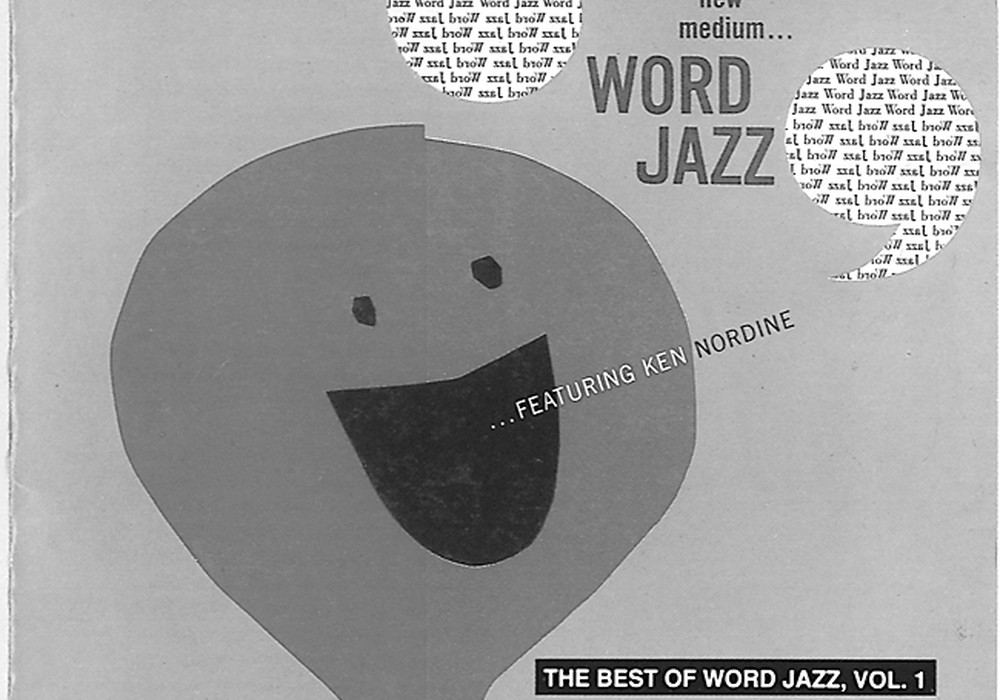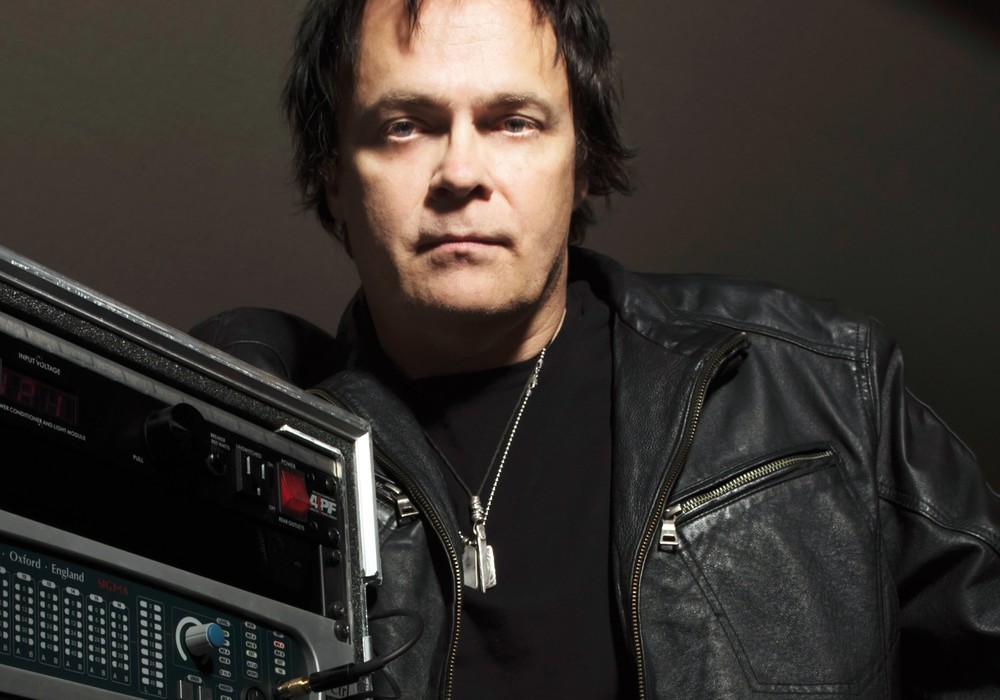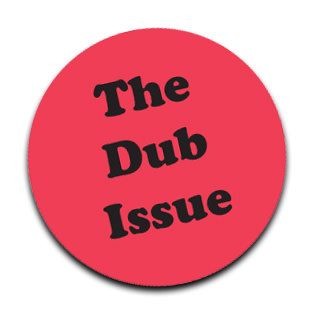
Jamaican electronics whiz kid Hopeton Overton Brown got his moniker "Scientist" from none other than one of dub music production's founding fathers, King Tubby (Osbourne Ruddock). As a teenager he began engineering and mixing out of Tubby's, later moving to Channel One and Tuff Gong studios. He is one of the genre's most prolific and creative forces, while also remaining a sought-after mix engineer and producer. In addition to his own impressive, if not stunning body of solo work, he has worked with Jamaican legends Bob Marley, Roots Radics, Sly and Robbie, Peter Tosh, and Horace Andy, to name just a few. Meanwhile, current artists such as Hempress Sativa, Ted Sirota, and Khruangbin have all benefitted from his otherworldly presentations of their music. To watch him mix is like watching man and machine become one. His mixes are dance-like performances on the console, and the sound pictures he paints are mystical and dreamlike. I tracked Scientist down and had the pleasure of digging deeper with one of music's unique geniuses.
What is dub?
Dub is the first electronic music where an engineer becomes a composer and an the artist. I developed techniques to leave the mind while keeping the mind wandering. That's basically dub. A composition from the engineer.
I know it's a popular genre, but I'm always amazed at how many engineer and producer friends who are not familiar.
Yes. Because here's what: Straight-up engineering, you record whatever band [you're working with] and nothing's altered. Everything is just how the musicians played it. With dub, now we have to recompose it. One element is the element of surprise. How to keep it all together and get the listener hooked on one pattern, and also how to switch up the pattern. Now what I can tell you is that every time you listen to a dub track, it never sounds exactly the same. Each time things sound a little bit different, and it is part of the reason why these records last over 30 years; because I've developed techniques of how to put things into the music so that each time you hear it, it sounds a little bit different each time. It's always going to remain fresh.
When you were a teenager and had an interest in electronics and fixing TVs, winding transformers and repairing amplifiers for sound systems in Jamaica, how did that play into you coming to work with King Tubby?
Because I wanted some parts for the amplifier I was building. I was introduced to King Tubby by a friend who lived in my neighborhood.
And getting some components from King Tubby?
Yes.
What was it about being there at the studio with him that attracted you to producing music as well as mixing?
Well, King Tubby's [Presents The] Roots of Dub was an inspiration to me the first time I heard it. I liked what was going on. It was a good album to test the amplifiers that I was building, because of the frequency response.
At what point did you have an opportunity to get behind the console?
Well, I actually made him a bet after being at the studio. We had a workshop, and my primary thing was to help to wind these transformers, fix whatever televisions and whatever amplifiers that would come in there. Then, by being there, I started putting my theories together about how to mix music. But prior to that, I thought I could build a console. When I got out to the studio and first did studio work, I found that my theory in building recording consoles was not really a one-man operation. I started talking to him about features he might like, things like moving faders and automation. To him, it was a joke. One day he made me a bet. He said, "I bet you wouldn't know the first thing to do." Because I was exposed to the studio by watching, and because I was an electronic engineer at that time, he lost his bet, basically.
What did you learn from him about setting up the console that was specific to dub mixing?
I'm a self-taught person. I got to see what I learned and observed. "Okay, whenever I hear that sound, this is how it's done," or, "This is how to do it," whether I had no knowledge of the studios back in those times to validate my theory. I read books about recording. I didn't have any prior experience. It was a 4-track machine. By being there, I started using my electronic skills to evaluate the theories that I had in my head. So, he gave me a wonderful opportunity.
Dub mixing is such an extraction and a breaking down of the music to its essential core. Would you say that that is true?
Yes, because I have developed techniques of how to make the music not become monotonous. A lot of the time, if you just mix the music and play it, it doesn't have anything to keep the imagination going. As you know, remix was started in Jamaica, and then here comes the hip-hop and everything, and it's after remix.
Was it simply the availability of things like reverb, tape echo, and phase shifter that found their way into the music?
No, no phasers. High-pass filter.
What do you think drew you and King Tubby, as well as people like Lee Perry to those sounds?
Parts of it was it was unique. You didn't really hear it on any other record. A lot of people believed it was phasers when it wasn't phasers. We just set up the high-pass filter. Why does it sound like that? A whole bunch of untold, unique techniques that I had to develop. Then, 30 years later, I am having an interview with you about what I was doing when I was a kid.
Were you splicing tape together of performances, or were they all one take and then the best one went to record?
Usually it's one take. Back in those times, producers didn't have the finances to be in the studio, so someone would book four hours of studio time, and you have to record all the parts and mix the record right after that, all in four hours.
Yeah, it's very different now!
Yeah, that's why I don't want to spend six months in the studio making one record.
How long are you typically taking with a project these days?
Well, it depends. I can do about 30-some mixes in about 12 hours.
Wow!
Yeah. Some people it takes them six months, and the entirety is one half-assed mix. Just like you hear all those albums where in a couple hours they were done.
Right. Well, there's something to capturing a performance and just getting it down. People could play then, too.
Yes.
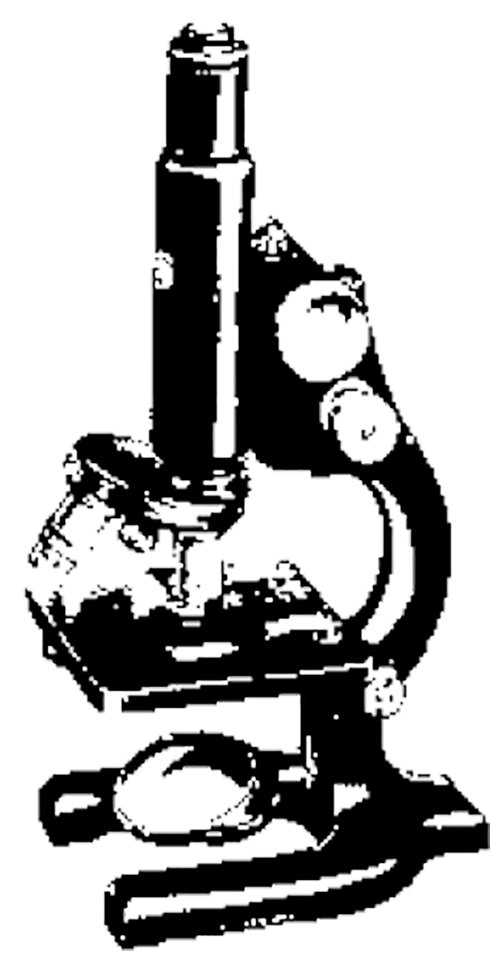
People were probably more prepared.
Um, not really. There was no rehearsal. Whenever you were working with these artists like Bob Marley, they made it right on the spot. The guitarist and the lyricist make up the song and learn the chord progression right on the spot, and within two minutes, tape rolling, and we're recording.
Wow. I bet a lot of people don't realize that. After you left Tubby's studio you went over to Channel One. You went from 4-track machines to having 16-track machines there.
Yes.
The records seemed like they got a little bit more clarity to them. What do you think the tonality change in those records were, or was it just your growth as an engineer?
Well, it was the engineering technique that I brought to it. I was the youngest one. Everybody has had their own way. When I was around Tubby's, I could hear all the defects that needed to be perfect, and every day I have a new formula for that. I'd listen to a mix and, "Okay, the snare doesn't sound good," and the reason the snare sounds like this is because it needed more bleeding. No compressors on anything, because compressors ruin the sound. I tried a bunch of things, but I was the hardest critic on myself. What sounded normal and good to other people, to me didn't sound good. That's what changed the sound at the studio. I didn't fix anything with consoles, or make a change to the console. What I did was to make changes to the recording technique. For example, back in those times, everybody believed that you should record flat, and I came and I recorded flat. "Well, okay, the reason why this record sounds like that is because it's flat, and you don't want bass coming through your hi-hat mics." So, I learned to use EQ to get the bass drum out of the hi-hat mics. Those changes were what helped those tapes to sound good. "Okay, the drum mic doesn't sound so good at this position. Let's try this position." I developed controlled bleed. "Okay, I need this amount of bleed on this instrument, at this frequency." So I put the whole thing together; you can hear drum bleed. Before, I was believing, "Okay, this is a kick drum. Don't let the snare or the hi-hat or anything bleed into the kick drum mic," and I would gate it. But when I go to listen to it, it sounded too stiff. I learned to develop the different types of bleeds. As a result, if I was playing the kick drum, I was listening to the timbale mic. I'd hear a little ring around the timbale mic, so I developed techniques to use all of that so when I put the entire drum set together it becomes the big, massive drum set that you're hearing.
You mentioned compressors. Do you not mix with any compression?
No. And I do not master [with compression]. If you want to see a goddamn monster come out of me, try mastering a song with compression. It doesn't work. It doesn't make bass fatter or do anything. The original idea of what compression means in electronics is completely different from what these guys think it is. Compression in electronics refers to the attack and release time. The first origin of a compressor had nothing to do with the broadening and fattening of sound. It's limiting. For example, the first use of a compressor, what they called in television repair, was AGC, or Automatic Gain Control. They use the same technique in radio transmitters, because you don't want the microphone over-modulating the transmitter, so they install a thing called an AGC control. Then they also do the same to a tape machine. You don't want the volume to go past this level or you'll distort the tape, so that's where it first came in. Knowing that I know how to build a compressor and a limiter, I can tell any engineer out there to put away the misconception; it does not make bass sound any fatter. I used the thing. I tried it, and it made the bass sound messed up, because now the bass is not breathing. It's not working at its natural dynamic volume. What's it good for? It has some useful properties on vocals. Back in the day, it was just a technique that I came up with for singers who sing loud and distort the tape. That's all it was for. Not to make bass and mixes sound fatter; all this verbal garbage I hear coming from some of these people.
Can you talk a little bit about some other misconceptions about gear? I also really want to talk about your position on analog and vintage gear versus digital equipment, because you are somebody who took analog gear to its limits. You used it in ways that no one was using it like that.
Yeah, well the first thing I heard people talking about was there was a Fisher reverb, and a Fisher reverb got that sound. Verbal nonsense. There was a Fisher reverb there, and I mixed two songs on it, but the reason I didn't mix any other songs on it was because it sounded noisy. It didn't sound good. So, this whole concept that, "Oh, there was a Fisher reverb on it," yeah, but I didn't use that on any of the mixes. I developed techniques using a console to get the reverb to sound like that. Now, when it comes to analog, analog gives you a fatter bass? Garbage. The reason why it's garbage is because digital can go down to one cycle. No tape machine, whether it's a brand-new tape machine or not, can produce one cycle. So, it's telling you that if the digital can produce one cycle, then, when you start to get in the range of 20 cycles or 100 cycles, it's going to reproduce it better. This whole misconception that vinyl sounds better than CD? Nonsense! Why? Because by the time you record to tape, the best tape machine out of the box – the most expensive tape machine – it automatically becomes a second generation. And by the time you've mixed it, that's one generation down. By the time you cut the stamper, that's the next generation down. By the time you go through the whole process after it becomes vinyl, it's several generations down. There's no way something five generations down will sound better than a first generation. With digital, it remains a one-generation process; you record at a current bitrate, which sounds better than vinyl. Here's the next problem with it. With vinyl, you have rumble with turntables. You find you have to put in a sponge or some dampening, or else the turntable's going to rumble. So, when I hear the verbal garbage about how vinyl sounds better than digital, that's nonsense. Then the second thing about it is that I can walk with several hundred gigabytes worth of songs on my thumb drive. Who wants to drag around boxes and crates of records? Some people do not know how to accept change; they don't know anything else, and they're stuck in one way. As you know, I developed a lot of these techniques in Jamaica, and a lot of people are still trying to understand how I did them. And God bless me, I alone have certain knowledge.
What do you think about the idea that your brain has to make sense of a digital file, because it's zeroes and ones?
Nonsense! Here, I did a study. I get two digital recordings, and I do what a tape machine would do. The tape machine, especially if it's not aligned properly, would start to lose the high frequencies. So, I get two digital recordings and roll off the high frequency [on one of them] and make it sound a bit more muddy. Then I get a group of people. Tell me which one is digital, and which is analog? When I get the final, people associate warmness with high frequency loss, saying, "There's high frequency warmness." That's what happens with a tape machine that is dirty or when it's out of alignment. Everyone says, "That's definitely analog! It's definitely warmer!" When I show it's two digital recordings, and that all I did was roll off the highs like a tape machine would do, or when you cut vinyl, this is what's supposed to happen. Then everybody says, "Whoops!"
Well, I don't think people necessarily know.
Look here, this industry is one of the most misleading industries. People just repeat what they hear the next geek say. Especially if that record reaches number one, everyone's going to say, "Yep, vinyl is better!" But look here, how much more vinyl plants are there left? How many more people are there making tape machines? Even SSL... they stopped making the [large format] analog consoles. Why? Because it takes more research and everything just to do one of those consoles. The new platform is digital. They stopped making carburetor cars not because it's better, but because new cars they have, with the fuel injectors, you don't need to adjust timing belts or anything like that. The computers run the injectors and tell the injectors how much fuel and when to fire the spark plug, precisely top dead center. They don't usually discontinue things because it's better.
Good point. What about color and the visual aspect of mixing? What are some common things that you see and go for, in terms of color palettes and the pictures you're painting with sound?
Well, I know this might sound like garbage, but different notes and different frequencies have different colors. Like, for example, bass would be blue. High frequencies, like hi-hat, would be white. That's the color I see flash in my head. That's what I see. It's where my imagination leads. The whole music, painting, any of that, it's something that happens in your brain that has to translate to your fingers. An artist might get a visual about that drawing and it's something that exists in their brains and get translated into [their] fingers. The same thing with the thousands and thousands of records I mixed. You're familiar with my discography. Is it a thousand? Tens of thousands?
How many titles have you released that are under your name?
Man, I stopped keeping track. When you do the quick math, just going back, bare minimum, was like five songs a day. So, five songs a day in seven days, how much is that? Thirty-five?
Yep.
Thirty-five times four, for one month; that's what?
It is 1,680 songs per year.
Multiple that by ten years, bare minimum.
All right, well that would be 16,800.
Yeah. And I know I would do more than five songs per day.
Yeah, so you divide that by what, ten songs per record, and that's a lot of records!
Yeah, a lot of records that you see. And if you do that times 20 years, then you see how fast the numbers rack up.
Yeah, that's pretty amazing. Are they all out there?
Yeah, some of them are out there. A lot of records now start coming out with King Tubby's [name on them]. There're a lot of false records under King Tubby's name. He didn't mix all those records. I mixed those records. King Tubby's Lost Treasure and King Tubby's Dangerous Dub; King Tubby didn't mix those records.
I've heard you talk about people being programmed. Can you explain that?
Well, each of us have a gift. It's already been written 2,000 years or more before we're having this discussion. I didn't choose this job. This job chose me. Each and every one of us are born with a unique purpose. Some people are going to be gardeners. That's what they're good at. Some people will be doctors, and some people go and fit in society in different ways. I've come to the conclusion that something programmed each and every one of us to be a specific way.
What about some of the current records you've been working on? You've got the Hempress Sativa record [Scientist Meets Hempress Sativa in Dub], and the dub version of that record. You mentioned earlier when we spoke that you're working with Akon.
Yes. We are setting up a facility. I will be building some speaker units and amplifier units based on the skill that I have developed over the years.
So, is that something that you've kept doing, or did you put it on hold for a while; the actual electronics and gear portion of the work?
I got distracted by the tours and mixing music. Actually, every night I go home and still do it in some form. I'm building this unit. What people don't understand is by the time you see a cell phone or any electronic unit, it's been through several reviews. I was building a high-pass, and I thought, "If you take the high-pass on Tubby's console and give it to anybody, it just will not work with these consoles." It won't work. This is a unit everybody wants, so let's start with electronics. I started with digital electronics. I'm at a stage now where I can build hardware. As I say, this whole entire backwards way of doing electronics in analog is dead. Here's why. You want to make a reverb? That's one completely different circuit. You want to build a microphone preamp? That's a different circuit. You want to build a noise gate? That's a different circuit. Each one of these components have different circuitry and parts. With the digital technology, there just needs to be an input and an output stage, and then it's whatever I program the chip to do. This is how it's done now. It's more precise. It uses less voltage. Five volts or 2.5 volts can run the entire thing. You don't need to have any big huge electric bill that generates heat that just deteriorates the parts more. It's lighter, and everything about it is better.
Makes sense.
Well, again, there are people who don't know things for themselves. When I do these shows with a digital console, everybody said, "What?" But the technology got so good that you find the console I use at a live show is a Midas M32. If you tried to do all of that on analog, you'd have to have all this extra outboard gear and noise gates and all this different equipment. With each piece of equipment, it just brings more noise into the signal chain and leaves more room for error. Now I can show up to the console, put in my thumb drive, recall whatever setting I had from last night, and it's there in two seconds! You cannot do these things with an analog console. And then the price of analog? One of those consoles are like $4,000 versus paying $500,000. The good thing with a digital platform is it's not like where a larger cost gives a better sound. It doesn't work that way. The sound and the quality are pretty consistent. It doesn't matter if you have a digital console that cost $50,000 or one that cost $5,000. Once encoded at a high bitrate and the total harmonic distortion is at the same number, they're going to produce the same quality. It's not like a $50,000 console is going to produce a better sound than somebody with a $5,000 console.
Well, you would hope that a digital console wouldn't necessarily impart any sound!
Well, the reality is ear crabs operating on peoples' brains. Okay, the thickness of our skull is, say, five millimeters. They can program robots to not go more than five millimeters. This is precisely where we need this, with a tolerance of one, plus or minus one percent. Go ahead and tell me to fly in a plane with a couple feet of visibility. Here's a quarter length of the runway; they'll put down the gear, lock it, and land. You can't do that with analog! What happens if the pilot's drunk?
Hopefully the pilot's not drunk on my plane.
Right. That's where the digital technology is. The guys can fly a plane or program all the information inside a plane, and the computers are programmed, "If this happens, do this. When you reach 10 miles, traveling northeast 20 degrees, start to come down and adjust the flaps at this angle." You cannot do these things with analog.
Nope.
So yeah, analog to me is like an antique car. Okay, time to move on now.
What do you think about dub's second wave coming out of England with Mad Professor, Adrian Sherwood, and the British dub scene, as well as some of the new dub artists, like Subatomic Sound System. Are you familiar with these guys?
Yes.
What do you think?
I welcome them. I like what they're doing. If it weren't for them keeping the dub scene alive in the U.K., it would have been not recognized. It wouldn't have lived so long. So yes, I welcome them. I encourage them to keep doing what they're doing.
This is probably an absolutely impossible question for you to answer, but I'm going to try anyway. What are three albums that you feel best represent your work?
Um, there are so many of them that I don't really have a favorite, but the one that seems to be stuck in the minds of everybody is that album Scientist Rids the World of the Evil Curse of the Vampires. As you know, there are thousands and thousands of songs I've mixed from thousands and thousands of artists. After a while, it's not up to me. I've mixed songs that are number one. I don't like the frigging song, but other people like it. I don't really have to like the song. If a lot of people like it, and it's an inspiration to people around the world, let it be. I don't look at the thousands of recordings that way. I just see them as a next kid. That kid's good, that kid's obedient, other people like the kids. They don't have to like them all. Other people like them. Other people like the records that I work on, so just let it go!
It seems like you're someone who's constantly looking and learning and wanting to keep going forward. So, when you listen to a record you made in 1980, are you able to enjoy it, or do you just hear the flaws?
I hear my mistakes of when I was just learning. It's part of the reason why I influence all these different people making records, because I'm the worst critic of myself. Like I'm building the digital gear I've done one time or two times, and it's not up to my standard. I hear my one mistake. Do you know the reason why people become good? It's the reason why airplanes don't fall out of the sky. It's because the people who build airplanes always see how they can make them better, and they're the worst critics of their own mistakes. That is why the technology reaches where it reaches. If the engineer were to say, "Oh, yeah; analog is good," then you couldn't imagine other things. Look here, I used to fix televisions. There's no money in fixing televisions now, all right? Now we have flat-screen TVs that give you better resolution than one of those old analog televisions. They're making these cell phones with megapixels that can record good quality, like a movie camera. So, which one is better? You're going to walk around with a million-dollar camera versus one of these new digital recorders, just so you don't need reels and reels of movie tape. You just need a reasonably-sized flash drive. That's better things. I'm all for digital. I come from both worlds. Plus, we did this when I was with Dr. Israel [on tour]. Everybody played vinyl records. When we started digital, they started to hear the bass pop. Yes, it's different; everybody's entitled to like what they like. I'm not gonna go back and say, "Well, then I want to be in analog again," because for me it's a reverb unit or one of those units. I know how to do analog. I've repaired several of them, and digital is a new technology. Almost every company who builds a digital console started building analog consoles, because you need a different circuitry for each part of the board. When I go out to these concerts, I'm using all plug-ins. I'd have to walk around with, "Okay, here's my AKG reverb." However, some of this analog gear does have a certain unique sound that digital doesn't get quite right yet. For example, some types of reverb units that come close, people want to know, "Is that really digital, or analog?" Just through the techniques I've developed in mixing so much music over the years, I can now manipulate the digital equipment to achieve the same thing.
Are there certain things that you still feel are not better digitally?
Drums, real horns.
Actual instruments?
Yeah. They still don't get it right. It doesn't have the dynamics and some of the tones. I hear some of them come pretty close. A drummer like Sly Dunbar [Lowell "Sly" Fillmore Dunbar]? I've seen them try it before when those just came out. He will use an acoustic snare and an acoustic hi-hat, and there's no substitute for these things now. Some of them come close, but those who know the difference will want to go back to real drums.
How do you conceive your mixes? Do they change? Are they the same every time?
I don't care what car you drive, it's always going to have a wheel for it to drive on. It's going to have to have some kind of fuel to propel it. There are certain things that never change. For example, the bass doesn't change. The hi-hat doesn't change. All of the basic principles of EQ-ing; those things never change. The layout of a console is key. I see a lot of people doing it. The reason why they're not going to get these things is because they don't understand the basic layout of a console. When I was going to school, my grandfather was trying to figure out why I could not read. I could not read and write to the best of my ability. What he figured out was that I didn't know my ABCs! After I learned my ABCs, then I could read better and write better. But is it possible to read and write if I don't know the alphabet?
It's important to know at least the basics of signal routing, aux sends, and these sorts of things. Do you see people that still don't know this?
Well, here's what I also see. Out of them doing it wrong, it creates a new way and a new thing. That's why I welcome it. Even though I don't quite get the way they're doing it, it created something new. Like I said, I don't have to like it. Other people like it? Fine. I'm not going to like every recipe. Some people like eating monkey brains. Some people don't. Everybody's entitled to like what they like. I'm quite sure some people might hear mixes that I do, and they don't like it. Okay, that's your prerogative.
It's a fair point.
Yeah.
I was speaking to your point about if you see somebody trying to do a dub mix and the way their setup is different than you do; it's not wrong, but they are not going to achieve the same results.
No, they will never achieve the same result. That is why one day I was considering: should I design a console? It's like the reason why everybody's still puzzled about how they built the pyramids. Modern-day equipment still can't figure out how the hell supposedly primitive people moved those huge blocks that are as big as a truck at a tolerance of zero point one degrees aligned, and these people are supposed to be "primitive" people. Now, if somebody could find books or knowledge about how to build the pyramids, that would be wonderful. So, I'm sitting on a lot of knowledge that I alone know about, and one day I might want to build a console with a proper layout. That's key. That's key.
Well, it lets you then come into the kitchen and cook. I always think mixing is so much like making a good meal.
That's exactly right. Here's why. I watch cooking shows, and I like to cook. You follow the recipe, you buy all the ingredients, but guess what? It's not going to come out the same way as the guy who's done it all his life. It's going to come out with better flavor and unique flavor, but if you're looking for the same thing, don't.
I think people like you who mix in a very creative and nontraditional way, in terms of the dub mix and that style, it's so much like being in the kitchen with the spice rack, but maybe you just use one spice a little bit.
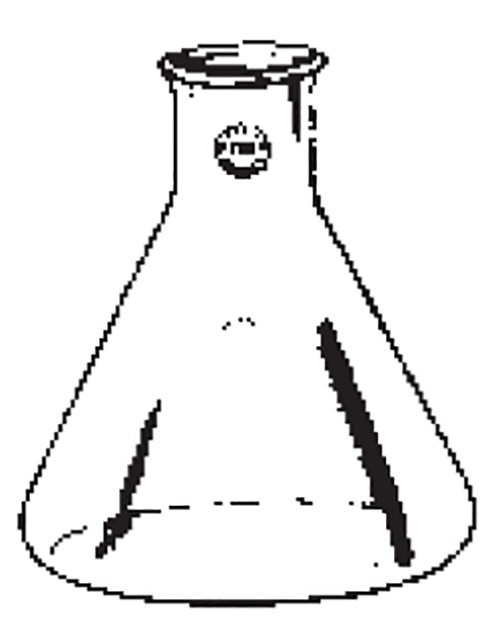
Mixing is just like cooking, because if you put too much pepper in, it's going to taste peppery. If you put in too much hi-hat, that's all you'll hear. You have to find a correct balance. But make no mistake. Before you can get to dub mixing, the instruments, you have to like what you hear, and they have to be recorded to the optimal first. That's the first step. You can't just take any little cheesy drum track or recording and get a great dub mix. It doesn't work that way. You can't just record with a crappy monitor or speaker system and expect to have the same results.
You've gotta have good ingredients.
Yeah. 
